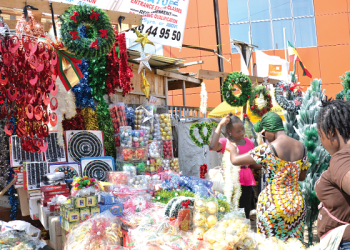Thousands of bags of rice harvested during the last farming season in the Northern Region have remained in the warehouses and homes as farmers struggle to find buyers.
Some of the farmers said the major rice off-takers in the region stopped buying their rice because the prices of imported rice had become lower due to the benchmark value discount.
Alhaji Salifu Abdul Salam, Chairman of the Mechanised Agric Service Providers Association, who spoke to the Ghana News Agency on the sidelines of a press conference on the benchmark value discount on rice in Tamale on Tuesday, said the situation would throw rice farmers out of business.
Alhaji Salam said, “Members of the Association and I have over 20,000 bags of rice. Avnash Industries, which is the major off-taker in the region, is not buying rice. When you ask them, they will tell you they will make a loss because of the benchmark value discount on imported rice.”
He added, “We already face a lot of challenges, including the high cost of production, which has tripled. We are trying to break even but we cannot. If something is not done about the benchmark value discount, it will be difficult for us to farm this year.”
Mr Zakaria Yahuza, a rice farmer from Dalun in the Kumbungu District said, “I have 300 bags of rice in the house. I cannot get buyers. The right price per 85kg bag is GHc300 but some buyers want to pay GHc140.00. I will lose a lot if I sell it at this price.”
“We are forced sometimes to sell some because you have to settle some financial challenges. The government must do something about the benchmark value discount now to save us,” he added.
The Press conference was jointly organised by the Rice Millers Association of Ghana and the Peasant Farmers Association of Ghana on the suspension of the implementation of the reversal of the benchmark value discount policy and its impact on jobs, livelihoods and progress of the rice sector in the country.
The government, in 2019, announced the benchmark value discount on some imported goods and products, leading to a reduction and or stabilisation in the prices of imported products.
During the presentation of the 2022 budget, the government announced the withdrawal of the benchmark value discount on certain products, including rice.
However, some interest groups said the move would lead to increased prices in the market, forcing the government to suspend the implementation of the reversal of the benchmark value discount.
Dr Charles Nyaaba, Head of Programmes and Advocacy at PFAG, who addressed the press conference, said “The benchmark value discount has led to the flooding of our markets with cheap imported rice.”
Dr Nyaaba said, “The benefits that come with the implementation of the reversal of the benchmark value discount are not only limited to increased revenue for the government but also the fulfilment of government’s own agenda of making Ghana self-sufficient in rice production by 2024 and the industrial transformation agenda.”
He, therefore, called on the government to withdraw the benchmark value discount on particularly agricultural produce that the country had sufficient capacity to produce, especially rice, to save the thousands of jobs that remained under threat of collapse in the rice sector.










Discussion about this post